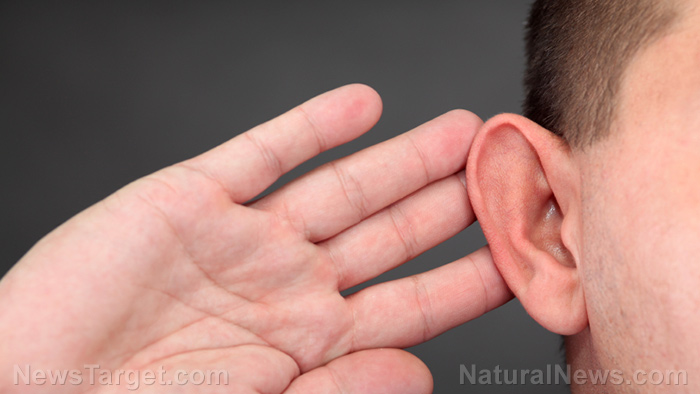High-speed hand dryers in public restrooms found to emit INSANE levels of ear-damaging noise
06/01/2017 / By Earl Garcia

High speed, jet-air hand dryers typically found in public restrooms produce as much noise and unhealthy effects on the human ears as having a pneumatic road drill operate at close range, according to a study carried out by researchers at Goldsmiths, University of London. The study also revealed that newer had dryer models generate higher noise levels compared with older models.
As part of the study, the research team conducted an acoustic test on various high-speed driers and found that the sound decibels produced by these machines were 11 times higher in a typical public restroom compared with a product testing laboratory. The research team noted that this effect forces hearing aid users to turn off their devices. In turn, this causes discomfort among dementia patients, and navigation issues for visually-impaired individuals.
“Manufacturers tend to test hand dryers in ultra-absorbent acoustic laboratories which is perhaps why actual sound levels are so much higher than those advertised. From this initial study it is evident that ‘ultra rapid’ cold air hand dryers are loud, and this loudness is vastly amplified in the highly reverberant and reflective small toilet. A wide range of vulnerable subgroups are being seriously affected by hand dryer noise, resulting in unwelcome stress in this sensitive space, and in extreme cases people are being excluded from public spaces, the workplace and schools…To solve these issues, we propose that engineers, sound artists and users come together to look at the acoustic space in which these dryers are found and tune the products accordingly to enhance the listening experience and minimise the discomfort that is caused to a whole range of people,” lead author Dr John Levack Drever said in Telegraph.co.uk.
Hearing aid company Audiologist.co.uk cautioned that noise levels as high as this may cause lasting damage to the elderly, children and those who already have hearing problems. A company official stressed that the generally accepted safety threshold for continuous noise exposure is only at 85 decibels. Some high-speed hand dryers produce as much as 90 decibels and more, a rate equivalent to that of a pneumatic drill.
“You’re standing for up to a minute in front of a machine that is making as much noise as a construction worker drilling a hole in the road. The only difference between him and you is that he’s been issued with ear defenders…The cumulative effect of working in an enclosed space with noisy machinery is well documented and it applies as much to toilet attendants as it does factory workers,” company spokesperson Jonathan Ratcliffe said in DailyMail.co.uk.
Studies find excessive noise levels in hand dryers
The findings by Goldsmiths researchers were reflective of a previous study published in Noise & Health. Health experts have previously believed that increasing the distance from a high-powered hand dryer may reduce decibel exposure. To carry out the study, the researchers examined eight various hand dryers and found that most restroom patrons complained about the excessive noise that the machines produced. The research team also found that distance from the hand dryer did nothing to dampen the noise. In addition, the study revealed that the loudest of the had dryers examined produces a noise level of more than 90 decibels. This rate was higher than the federally-mandated levels of noise exposure among workers.
Another study conducted by the University of Michigan and 3M Corp.’s E-A-RCAL Acoustical Laboratory revealed that while short term exposure to hand dryer noise may not induce long-term damage, using the devices may exacerbate tinnitus, a hearing condition characterized by constant ringing in the ears. According to the National Institutes of Health, 25 million Americans or about 10 percent of the adult population in the U.S. currently suffer from the condition. (Related: Learn how to address tinnitus the natural way)
You can read more articles like this when you visit Medicine.news.
Sources include:
Tagged Under: hand dryers, health, hearing




















